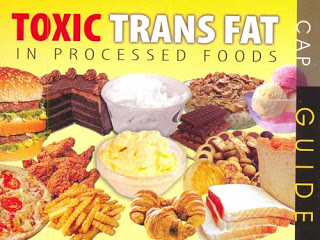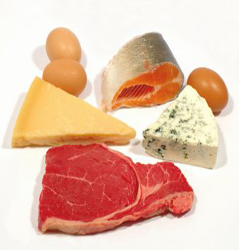
Are fats bad for you?
Well, that has been the long held belief for years (decades), then fats became good again. Now, there is a debate raging on about which fats are good and which ones are bad. Some health websites and gurus, claim that saturated fats (as an example) are actually good and have just been maligned, others disagree.
So, which is it, are fats bad for you or not? Look, there are different types of fats and, depending on what you replace the fats with, it can seem to be good or bad by comparison. The easiest way to do this, is to look at the different types of fats, examine what they do and explain some of the studies that were done on them. Then I’ll let you make a decision (an informed one) on which is good and bad. Sighhh…yes you have to do a little thinking for yourselves. Here we go.
What are fats? Fats are esters (chemical compounds derived from an acid) of fatty acid and glycerol. They are one of the three main macro nutrients, the other two being proteins and carbohydrates. Humans can synthesize most fats from diet, but there are two types that must be obtained from foods. These are alpha-linolenic and linoleic fatty acids and are essential fats. They are used to build omega-3 and omega-6 fatty acids.
Types of Fats
Yes buddy, there are several types of fats. The generic ones that are always in the news, saturated and unsaturated fats and trans fats. Unsaturated fats can further be categorized as monounsaturated and polyunsaturated fats. So, the ones with a bad rep are, saturated and trans fats. Now we’re getting into the meat of the matter, so to speak. Let’s take an unbiased look at each category, and see how they contribute to a healthy/unhealthy lifestyle.
 Unsaturated fats Why not start with the good fats, as they are sometimes known. Back in the dark ages (up to the 90’s) they were clumped together with other fats and had a bad reputation. But, as we became enlightened, we realized that not all fats are created equal. Unsaturated fats are either monounsaturated or polyunsaturated. The difference being, in a monounsaturated fat, there is a single double bond (hydrogen atoms), whilst in a polyunsaturated, there are multiple double bonds. Several studies have shown the benefits of unsaturated fats in reducing the risk of cardiovascular disease (CVD), lower blood pressure and improve blood lipid profiles [1,2,3]. These are just a few studies touting the health benefits of these types of fats.
Unsaturated fats Why not start with the good fats, as they are sometimes known. Back in the dark ages (up to the 90’s) they were clumped together with other fats and had a bad reputation. But, as we became enlightened, we realized that not all fats are created equal. Unsaturated fats are either monounsaturated or polyunsaturated. The difference being, in a monounsaturated fat, there is a single double bond (hydrogen atoms), whilst in a polyunsaturated, there are multiple double bonds. Several studies have shown the benefits of unsaturated fats in reducing the risk of cardiovascular disease (CVD), lower blood pressure and improve blood lipid profiles [1,2,3]. These are just a few studies touting the health benefits of these types of fats.
Monounsaturated fats can be found in foods which include avocado, olives, nuts, whole milk products, etc. Foods rich in Polyunsaturated fats include, walnuts, sunflower, sesame, and pumpkin seeds, flax seed, soy milk and tofu, fatty fish (salmon, tuna, mackerel, herring, trout, sardines). Both omega-3 and omega-6 are polyunsaturated fats and have been linked to lower cardiovascular disease.
It should be noted that polyunsaturated fats are subject to degradation when exposed to heat and oxidizes. This leads to it becoming rancid and form toxic products that can lead to CVD, and inflammatory joint disease, including rheumatoid arthritis. So one should be careful to limit fried foods cooked in polyunsaturated oils. So whilst there are a lot of pluses to consuming unsaturated fats, like with anything else, moderation is recommended. Let’s now jump straight to trans fats or bad fats as they are known as, and then we’ll look at the controversial saturated fats.
Trans fats The bad fats as they are known, are generally avoided at all costs. What makes them so bad? Let’s take a look, shall we. You can find trace amounts of t rans fats in meat and dairy products. But, generally everyone is up in arms over artificial trans fats. These are normal fat molecules that have been deformed during a process called hydrogenation, where liquid vegetable oil is heated and combined with hydrogen gas to make them more solid [4].
rans fats in meat and dairy products. But, generally everyone is up in arms over artificial trans fats. These are normal fat molecules that have been deformed during a process called hydrogenation, where liquid vegetable oil is heated and combined with hydrogen gas to make them more solid [4].
Trans fats are known to reduce levels of HDL (so called good cholesterol) and increase levels of LDL (so called bad cholesterol), in addition to contributing to increased CVD [5, 6, 7, 8]. You can find trans fats in baked goods (containing shortening), fried foods, margarine, non dairy creamer, potato chips and any kind of partially hydrogenated oil. There really is no debate about how bad these fats are. You should try to avoid them at all costs. Where it begins to get sticky is when we address saturated fats as we’ll see in the next section.
Saturated fats I’ve deliberately saved this for last. You see, the pros and cons of saturated fats are a subject of much heated debate. Depending on where you look, they can be either bad or good. Let’s start. Saturated fats are generally found in dairy products, meat, and various oils. No w various groups such as the ADA (American Dietic Association), BDA (British Dietic Association) and the AHA (American Heart Association) [9, 10, 11] all recommend reducing levels of saturated fats to lower risk of CVD. But, there are studies that disagree that these types of fats are a risk for CVD, and similarly, others show that replacing them with polyunsaturated fats reduces that risk [12, 13, 14, 15, 16, 17, 18].
w various groups such as the ADA (American Dietic Association), BDA (British Dietic Association) and the AHA (American Heart Association) [9, 10, 11] all recommend reducing levels of saturated fats to lower risk of CVD. But, there are studies that disagree that these types of fats are a risk for CVD, and similarly, others show that replacing them with polyunsaturated fats reduces that risk [12, 13, 14, 15, 16, 17, 18].
There is a study that shows that saturated fats increase the large fluffy type cholesterol. This type is thought to be not nearly as dangerous as the smaller more dense LDL particles [19]. It seems to get more and more confusing as newer studies, concerning saturated fats, pop up. It is evident that more studies need to be done and in the mean time, just to be safe, follow the recommended guide lines with regards to saturated fats. If you want to consume more, have your doctor monitor your levels of cholesterol and if possible determine the types of LDL cholesterol present in your blood. This will help to determine your risk level for CVD.
Summary So, you thought you knew everything about fats, huh? In a nut shell, consumption of unsaturated fats have a lot of benefits, trans fats should be avoided at all costs and there is heated debate about saturated fats. So for now, maybe it might be best to follow the recommended guidelines as far as saturated fats go. I will keep updating this post as more information becomes available and see if we can shed more light on saturated fats.

Good article! I follow a ketogenic diet where fat makes up 70% of my intake. I have been eating this way for over a month, and my husband is going on almost 3 months. We have both lost weight and feel great and have lots of energy! The best part is always feeling satisfied and having no sugar or carb cravings at all! We eat natural trans fats found in grass fed meats and dairy fats. We eat polyunsaturated fats such as Extra Virgin Olive Oil, walnuts, fatty fish, and chia seeds. Some monounsaturated fats we eat are bacon fat and avocados, and saturated fats we regularly consume are butter, eggs, coconut oil, cream and red meat. I believe fats are good for you as long as your body can use it for energy when you restrict sugar and carb intake.
Yes good and bad fats are relative and it really depends on what the rest of your diet looks like. Everything must be looked at as a whole.
Hi Dave,
Thanks for all that good information about the kinds of fats we eat. I’m about to start a diet and am trying to get everything together so I can plan my meals. That way I will be prepared and not trying to figure it out at meal time.
I did a fat free/low fat diet before but I found that fat free foods added a lot more sugar and salt that normal.
I will also be adding some exercises to the mix.
Thanks for the info. I bookmarked it so I could keep up with all the other good information on your website.
Cheers,
Verna
Keep coming back for more info. I lost around 60 lbs and so can you. With the right information it doesn’t have to be that hard. Good luck with your diet.
Great article on fats. It’s always been a hot topic since it’s one of the 3 macros and gets just as much attention as the other 2. When I saw that you withheld judgement on saturated fats, you gained credibility in my eyes because saturated fats are actually good for us, as long as the source is right.
Thanks. I will do a little more research on saturated fats, before making any judgments. I don’t really want to say whether it’s good or bad just yet. Things are, just never that black and white.